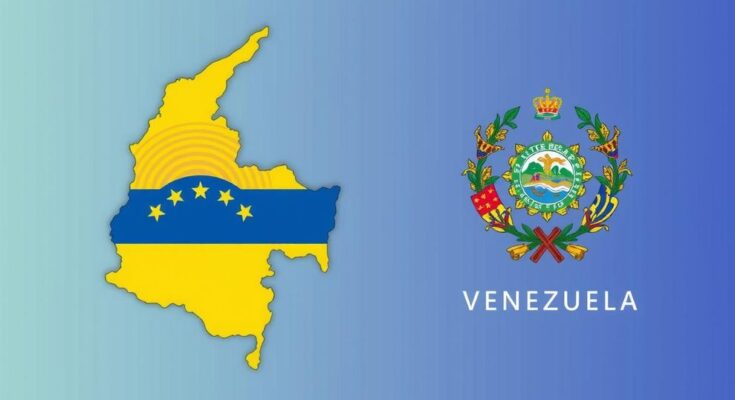Colombia will not recognize the reelection of Venezuelan President Nicolas Maduro unless his government publishes vote records from the July election by January 10, 2025. The CNE quickly declared Maduro the winner, yet many in the international community, including Colombia, question the validity of the results amid allegations of fraud and lack of transparency. A violent crackdown on protests post-election has resulted in numerous casualties and arrests, further complicating the political situation.
Colombia has issued a clear warning to Venezuela regarding the reelection of President Nicolas Maduro, stating it will not acknowledge the results if the Venezuelan government fails to disclose the vote records from the recent election held in July by January 10, 2025. This declaration follows the rapid announcement of Maduro’s victory by the Venezuelan electoral authority (CNE), which reported that he secured 52 percent of the votes cast. Despite this, significant segments of the international community have rejected Maduro’s reelection, citing the absence of a comprehensive vote breakdown, which is a legal requirement that the CNE has not fulfilled. The Venezuelan opposition has denounced the legitimacy of the election, asserting that their own analysis suggests their candidate, Edmundo Gonzalez Urrutia, won approximately two-thirds of the votes. Contrary to this, the CNE claims that the opposition received only 43 percent of the votes. Following a warrant for his arrest on charges perceived as politically motivated, Gonzalez Urrutia has since sought refuge in Spain. Colombian Foreign Minister Luis Gilberto Murillo emphasized the position of the Colombian government, stating, “the presentation of the (Venezuela voting) minutes must be made before the end of the current presidential term, on January 10, 2025.” He further affirmed that failure to comply will lead Colombia to reject the results proclaimed by the Venezuelan electoral body. In response, Venezuelan Foreign Minister Yvan Gil criticized Murillo for what he described as a lack of assertiveness in diplomatic meetings, suggesting external pressures are influencing Colombia’s stance. Gil indicated that Venezuela would respond appropriately, asserting that Murillo would regret his continued interference in Venezuelan affairs. Brazil has similarly withheld recognition of Maduro’s reelection, pending a detailed vote analysis, while several other Latin American nations, including Argentina and Peru, have sided with the United States in endorsing the opposition’s victory claims. The aftermath of the contested election has been troubling, with reports of a crackdown on protests in Venezuela, resulting in a tragic toll of at least 27 fatalities, approximately 200 injuries, and around 2,400 arrests.
The political landscape in Venezuela has been fraught with contention, particularly surrounding electoral integrity and governance. President Nicolas Maduro, who has been in power for several terms, faces accusations of authoritarianism and election fraud. The July elections that purportedly confirmed his victory have been challenged both domestically and internationally. While Maduro’s government quickly declared a favorable outcome, the lack of transparency in vote counting has led to widespread skepticism and claims of malpractice from opposition groups and foreign governments alike. Colombia’s stance reflects a broader regional concern about democracy and human rights in Venezuela, especially in light of ongoing conflicts and civil unrest.
In summary, Colombia’s firm stance against recognizing Nicolas Maduro’s reelection hinges on the Venezuelan government’s adherence to electoral transparency. The demand for the publication of vote records before January 10, 2025, underscores the urgency for accountability in Venezuelan governance. As regional neighbors and the international community observe the unfolding situation, the call for legitimacy in electoral processes remains critical, particularly in the context of Venezuela’s recent political turmoil.
Original Source: www.barrons.com




